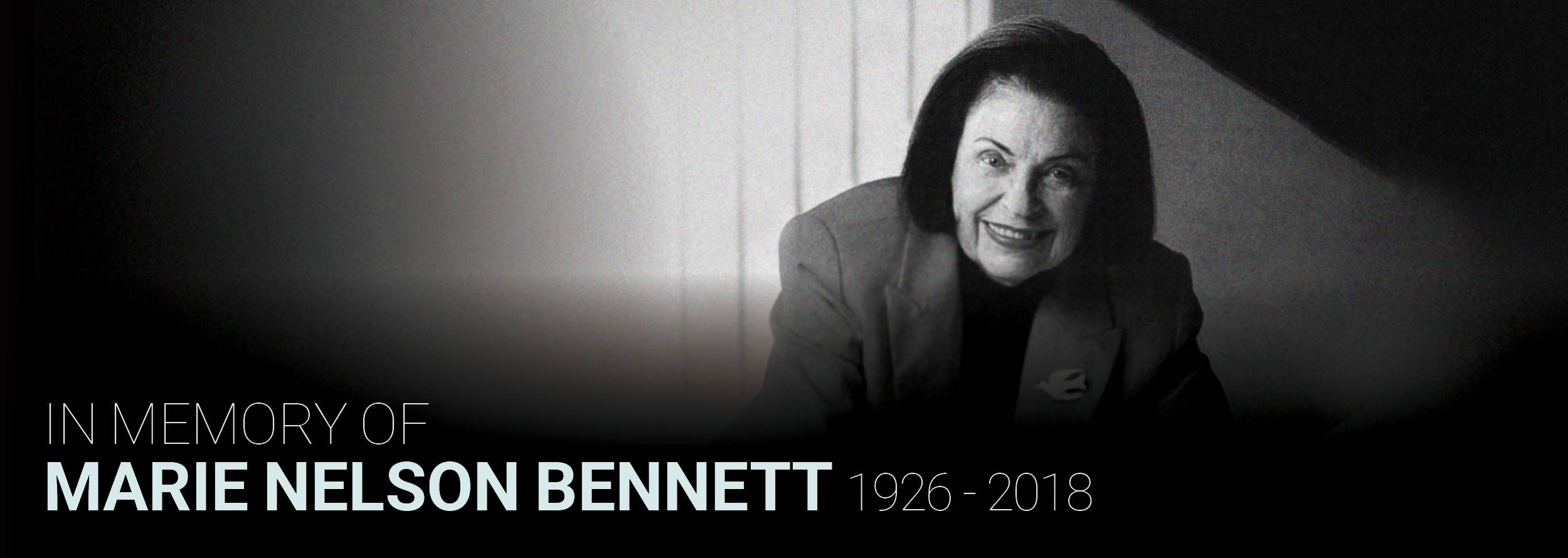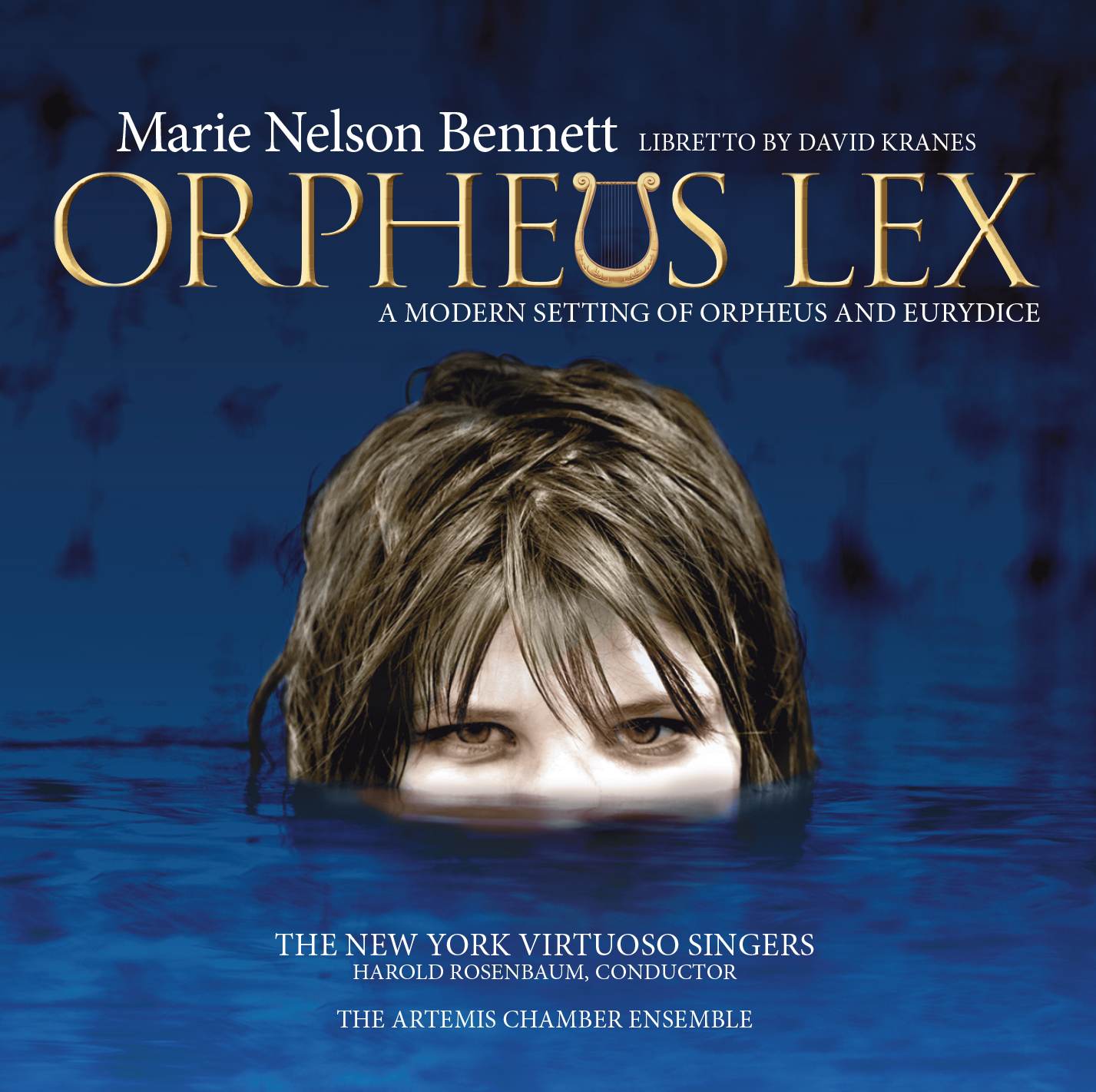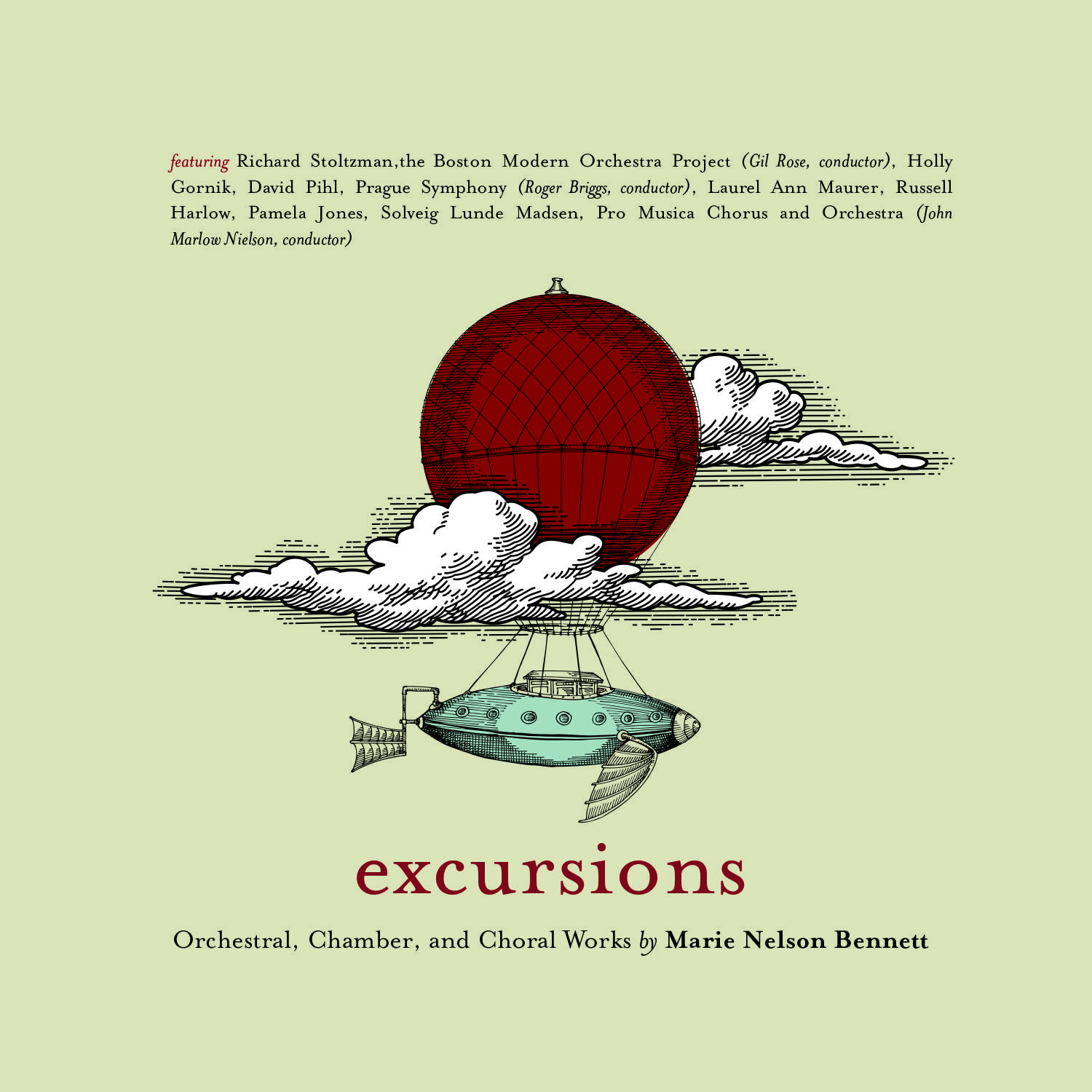The opening movement of Marie Nelson Bennett’s English horn concerto Excursions (2004) is an almost perfect microcosm for her extraordinary musical accomplishments. Stately and confident, the movement’s initial brass fanfare is decidedly mid-century in style, reflecting Bennett’s early instruction with Paul Hindemith at Yale University in the 1950s. As this introduction unfolds, we discover two more cornerstones of Bennett’s music: thoughtfully conceived instrumental textures – brass gives way to a world of winds, strings, and glockenspiel – as well as stunningly lyrical melodies, which form the solo English horn part.
Celebrated by critic Edward Reichel as, “one of the most well-liked and respected figures among Utah composers,” Marie Nelson Bennett’s body of work is expansive, and includes over 100 original works and arrangements for orchestra, voice, choir, chamber ensemble, and various combinations thereof. Such creativity is remarkable in any composer’s life, but becomes more admirable when we consider the incredible determination Bennett relied upon to write music in the face of immense obstacles.
As early as her undergraduate studies at the University of Utah in the 1940s, Bennett experienced significant difficulties accessing training and gaining acceptance as a composer. A guest music critic to the school’s composition seminar remarked, after seeing Bennett in the room of composition students, “there will never be a woman composer worth anything.” And, after she passed an entrance exam to enroll at Yale, the university refused to recognize Bennett’s bachelor’s degree, making it nearly impossible for her to pursue graduate studies in composition. Undaunted in her desire to work with Paul Hindemith, Bennett appealed directly and persuasively to the legendary German composer, who intervened successfully on her behalf.
After seven years of study, and while balancing her roles as a mother and co-manager of a Salt Lake City-area motel, Bennett completed her doctorate in music composition at the University of Utah in 1980. Only a year later, after her daughter and husband passed away suddenly within a month of one another, Bennett was left to run the motel with her son, which forced her to wake at 5 A.M. so she could compose before the workday commenced. Despite these challenges, Bennett continued to create actively, and would maintain this morning routine well into her 90s.
In 1994, when Bennett was nearly 70 years old, her music entered the awareness of Boston-area composer and impresario William Thomas McKinley, who championed her compositions and helped usher in an incredibly active period in Bennett’s output. The opera Orpheus Lex (2005) is, perhaps, the crown jewel of Bennett’s music from this time. Scored for orchestra, three vocal soloists, chorus, and narrator, the work displays her gifts for orchestration and melody to their fullest, and epitomizes compelling operatic storytelling. Conductor Harold Rosenbaum, who premiered Orpheus Lex, notes Bennett’s music is, “elegant, extremely well crafted, and as gentle as her soul,” adding, “Marie and her music deserved much more recognition in her lifetime, and continue to deserve attention now.”
The works on Bennett’s two albums with Ravello records – EXCURSIONS (2010) and ORPHEUS LEX (2014) – span 25 years of her career, and demonstrate a consistently powerful voice that does not waver through her life’s incredible tribulations. Bennett’s compositional achievements are a testament both to a generation of inexplicably forgotten and under-celebrated American composers, and, more poignantly, to music’s role as a guiding light and refuge in a composers’ life.
— Dr. Garrett Schumann, D.M.A.





